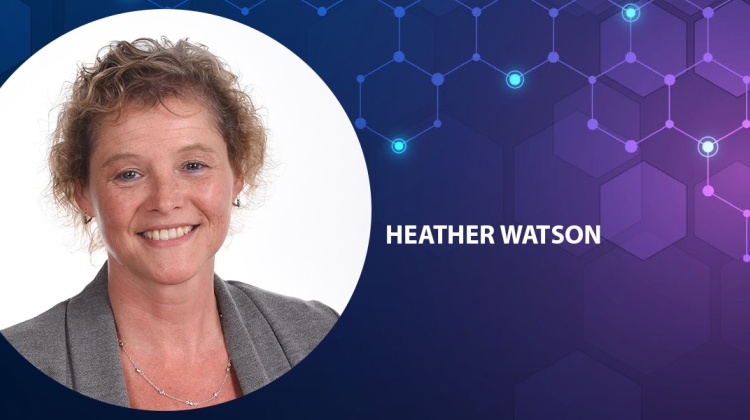GlaxoSmithKline (GSK) was a constant in Heather Watson’s life. “I grew up in a suburb of West London, and Glaxo was the largest company in the area. As a child, I always wanted to work there, even though I didn’t really know what they did. Ultimately, I was drawn to the pharma industry not as a scientist but in IT as discovering and understanding how computers could help make medicine safer, more readily available, and more cost effective really interested me.”
During her 34 years with GSK, Heather changed roles almost every three years, each time with increasing responsibility, before reaching her final role in the company as Director of Computer Systems Quality Assurance, where she implemented strategy, policy, and objectives; identified potential computer compliance risks; and was responsible for delivering departmental programs covering internal computer system audits, external supplier au-dits, project support, inspection readiness, communication, and education.
Although Heather worked on multiple projects at several sites in many different cities and countries around the world at GSK, one project stands out among the rest: “Twenty-plus years ago, as part of the Global IT Risk Management team, we identified risks to the company and the pharma industry and had predicted that there would be a pandemic one day. I was very involved with identifying how it would start, how it would affect everyone, and what plans we should put in place. I was in America on business in February 2020. I arrived on Friday evening and on Saturday morning I received a phone call from the GSK travel group saying, ‘You’re going home now.’ I thought, ‘Okay, we’ve gone pandemic because our plan said one of the first things we would do would be to repatriate any staff who were not in their home countries.’ From that point on, things rolled out much as we’d predicted and the plan that we’d developed became reality, as COVID-19 took ahold of the world.”
As for predictions for the future of computer system validation in the pharmaceutical industry, Heather says that members of GAMP® are always looking at the impact of new technologies and regulations: “Technology like blockchain, artificial intelligence, and machine learning may be new to the pharma industry but not to other industries. GAMP® will be looking at the impact of these and seeing if they have any effects on computer system validation. Once the FDA’s computer software assurance guidance is issued, we will review it and understand if there’s any impact that we weren’t aware of. Because of ISPE, the GAMP® community is able to review and comment on new regulations and that is a great benefit.”
Heather says that ISPE’s Engage forums are also an excellent benefit to members: “ISPE has so many subject matter experts as members. You can send a question to a whole load of GAMPers and it’s rare that somebody doesn’t know the answer. It’s really interesting because people ask some very simple questions and very complicated ones. But no matter the question, the network is a huge benefit because you will get a good response.”





